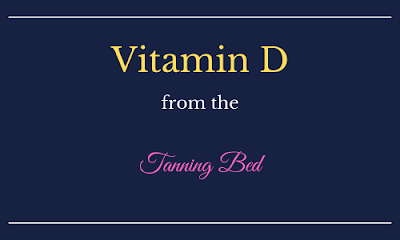Vitamin D from the Tanning Bed

What is a Tanning bed? The tanning bed is used to give a cosmetic tan by emitting ultraviolet radiation through the device. It's also known as a sunbed. UV lamps produce UV radiations that contribute to faster melanin production. Tanning beds have levels from 1 to 6. Level 1 and level 2 have low-pressure bulbs while levels 3, 4, 5, and 6 have medium to high-pressure bulbs. Higher-level tanning beds tan skin faster and for a longer duration. They produce more UVA rays and lower UVB rays. UVA radiations specifically contribute to the bronze of the skin. Tanning bed and Vitamin D absorption: Vitamin D plays an important role in regulating calcium and phosphate in the body. It's vital for facilitating the normal immune system. Apparently, people living in colder regions absorb Vitamin D by exposing themselves to sunshine but some of them also go for tanning beds in the hope to fulfill their Vitamin D requirements. Tanning beds do not at all provide the amount of Vit...





